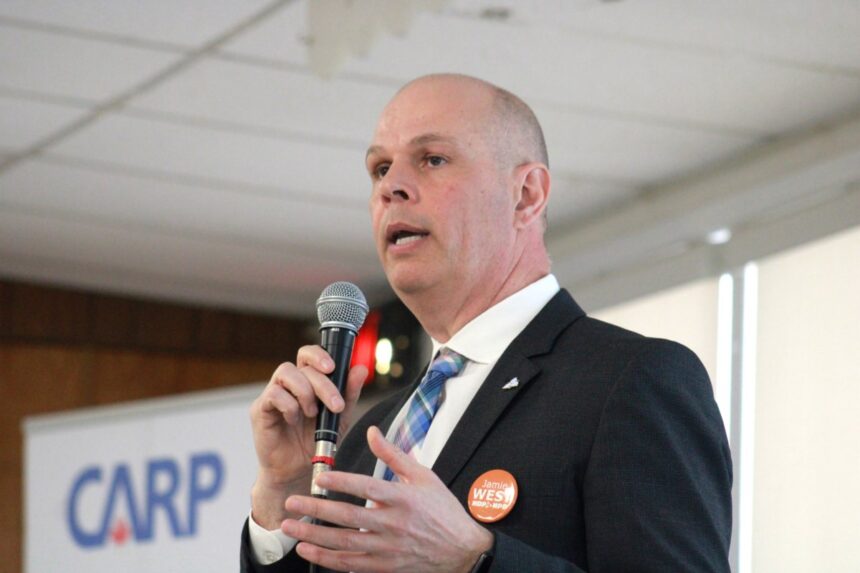The hallways of Ontario schools are increasingly becoming battlegrounds for families of special needs children, who find themselves fighting a system that appears structurally incapable of meeting their children’s basic educational requirements. This growing crisis has prompted Sudbury MPP Jamie West to issue a formal appeal to Education Minister Stephen Lecce, demanding immediate intervention and comprehensive reform.
West’s letter, delivered earlier this week, details the harrowing experiences of constituents whose children with special needs face daily challenges accessing appropriate educational support. “I’ve heard from parents whose children are only permitted to attend school for one hour daily due to staffing shortages,” West told CO24 News, highlighting what many educators privately describe as a systemic failure.
The MPP’s intervention comes amid mounting evidence that special education resources across the province have reached a breaking point. Educational assistants—critical personnel who provide individualized support—are stretched beyond capacity, with many schools reporting staff-to-student ratios that educational experts consider untenable.
“What we’re witnessing isn’t simply a resource allocation problem,” explains Dr. Elaine Cormier, education policy analyst at Laurentian University. “It represents a fundamental disconnect between provincial funding models and the reality of classroom needs, particularly in northern communities where specialized services are already limited.”
West’s letter specifically addresses the alarming practice of “voluntary exclusion,” where parents are asked to keep their special needs children home due to inadequate support systems at school. This practice, while not officially sanctioned, has become an increasingly common gray-area solution that educational advocates argue violates students’ rights to equal access education under Canada’s inclusive education frameworks.
The Ministry of Education has maintained that special education funding has increased in recent years, citing a $3.25 billion allocation for the 2023-2024 academic year. However, school board administrators counter that these increases have failed to keep pace with both inflation and the growing complexity of student needs, particularly following pandemic-related learning disruptions.
“The numbers on paper and the reality in classrooms tell two very different stories,” notes West. “When parents are forced to choose between their employment and their child’s education because schools can’t accommodate basic needs, we’ve moved beyond a funding issue to a human rights concern.”
The situation in Sudbury mirrors challenges emerging across Ontario’s educational landscape. A recent provincial audit found significant disparities in how special education services are delivered across regions, with rural and northern communities facing particularly acute shortages of qualified personnel and specialized programs.
For families caught in this systemic gridlock, the consequences extend far beyond academic concerns. “When my son can’t access consistent educational support, it affects his emotional development, his social skills, and our entire family’s wellbeing,” explains Sudbury parent Michelle Laframboise, whose 10-year-old son has autism. “We’re essentially being told that his education matters less.”
West’s letter calls for immediate measures including emergency funding for additional educational assistants, mandatory reporting of exclusion incidents, and the development of a provincial standard for special education service levels. The MPP has requested a meeting with Minister Lecce to discuss implementing these measures before the winter break.
As this situation continues to unfold, the fundamental question remains: in a province that prides itself on educational excellence, how have we arrived at a point where our most vulnerable students are being systematically excluded from their right to learn? The answer may determine not just the future of special education in Ontario, but the very meaning of educational equity in our society.














